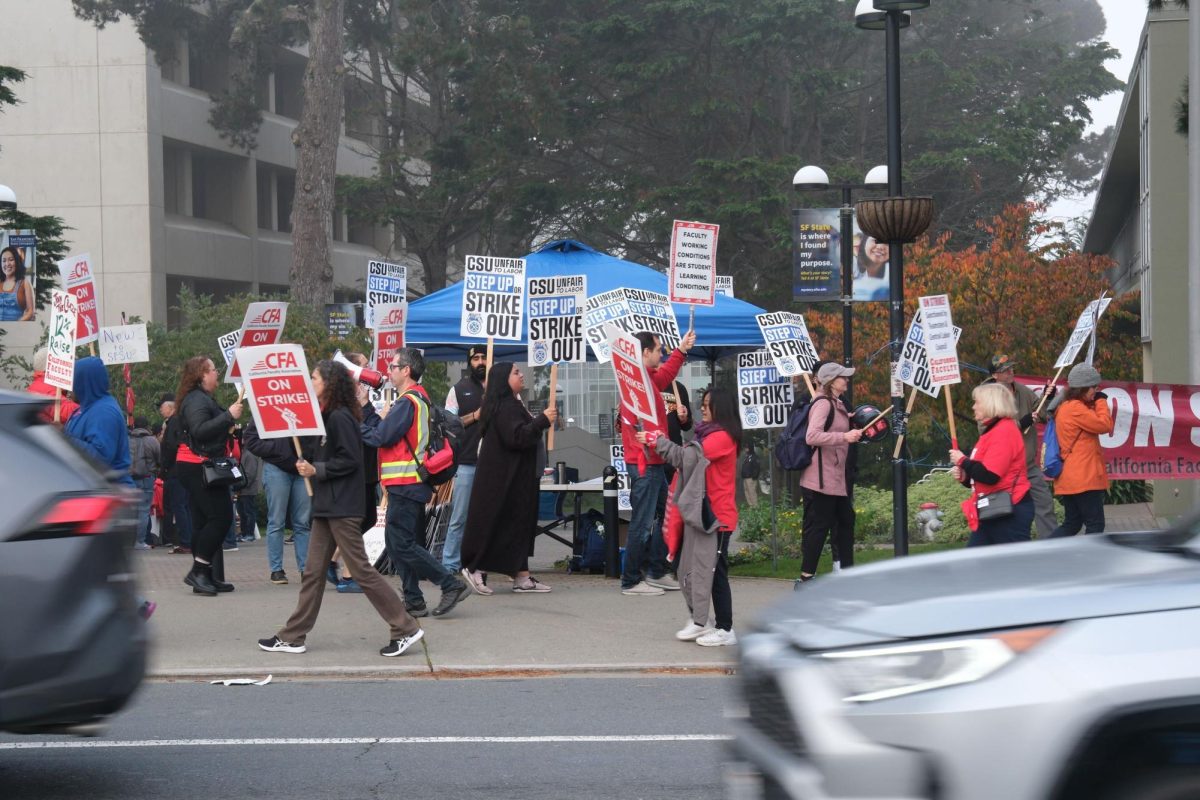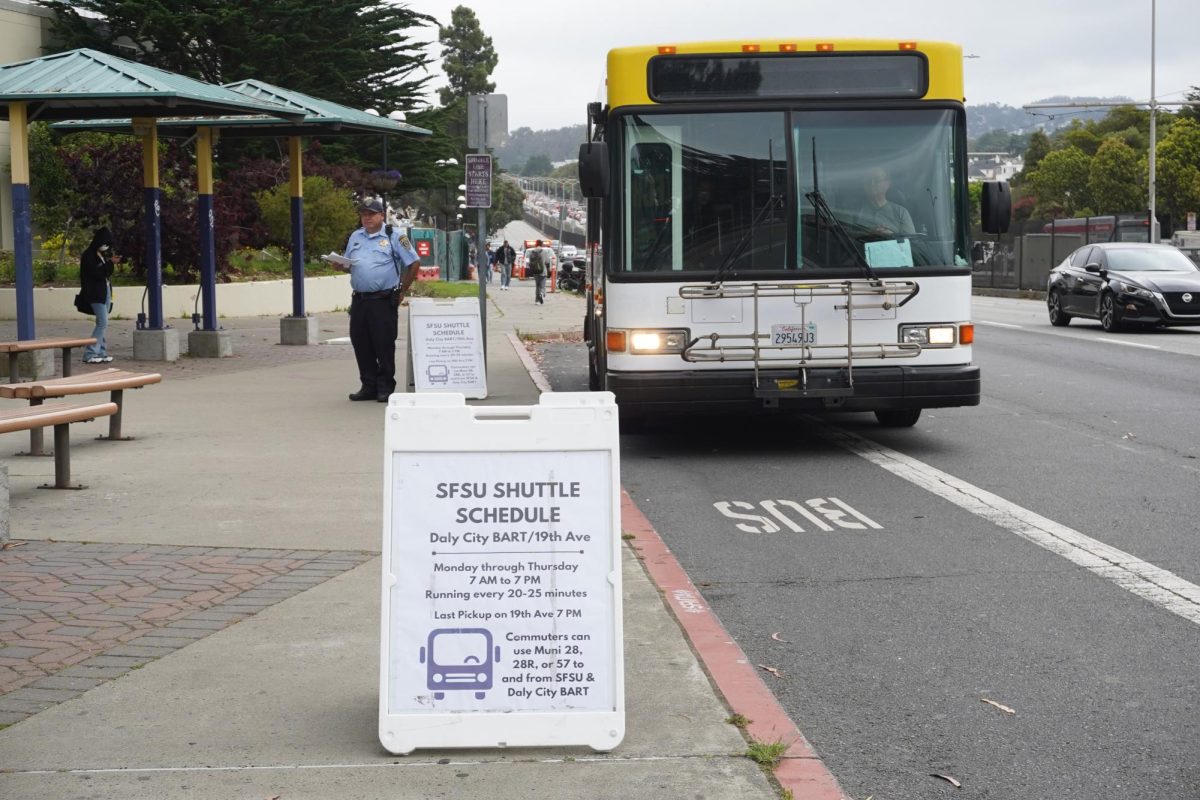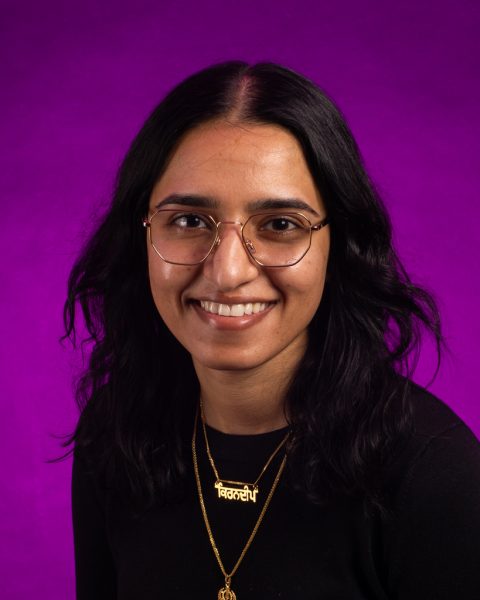San Francisco State University’s Muslim community embarked on its Ramadan fasting journey as the morning of March 11 dawned, marking the start of a sacred tradition.
Students around campus began the month-long process of fasting and worship to connect to Islam. The holiday is expected to end on April 9 with the celebration of Eid al-Fitr, the festival that signifies the end of Ramadan.
Maria Anjum, a third-year student at SFSU, reflected on the importance of observing Ramadan as a university student and on looking toward the future.
“You set goals before coming into Ramadan,” Anjum said. “Ramadan is not just about fasting, but it’s about fasting for your entire body — your eyes, your hands, everything of that nature, of your mouth; making sure what you’re saying is nice and appropriate.”
Anjum acknowledged that she takes certain things for granted and said she wants to release that mindset to utilize her mind in a better manner.
“Ramadan is a lot about reflecting on where else we can use our time,” Anjum said. “We think about those less fortunate than us and people that have to, basically, fast involuntarily every day just because they don’t have the resources to eat food.”
During Ramadan, Anas Farhan, a third-year student at SFSU, finds solace in connecting with his Yemeni heritage. He said he uses this time to strengthen familial bonds and embrace his cultural roots.
While living in America, Farhan acknowledged the struggles of the Yemen civil war and used the fasting period to reflect on the challenges the Yemeni people are facing due to starvation.
“12 kids die a day from food hunger, so it’s something that we feel for them and [makes us] connect to them,” Farhan said.
Farhan expressed gratitude for knowing that his relatives are well taken care of, despite knowing that others around them do not have the same blessing.
“I do have family down there, so luckily they are able to get food,” Farhan said. “I know their neighbors next door don’t really have something to eat, and that makes me really sad.”
Some students at SFSU feel that the campus could make improvements to better accommodate the Muslim students who are observing their fasts.
Nadir Ali, the event coordinator for the Muslim Student Association, believes the school should be more concerned about the students’ health when they need to moderate their fasting.
“I have classes during the time we break our fast, and it’s kind of inconvenient,” Ali said. “I’ve been fasting all day, and I have to wait however much time for my class to end for me to eat.”
Ali believes better time management would benefit students who seek to eat immediately after their fasting time ends.
“If I’ve been fasting all day, they should give a grace period for students to eat a date, drink some water; maybe get a couple of bites in of their meal, and then they can go back to class,” Ali said.
SFSU MSA plans to host three Iftar events in the coming weeks at the UClub in the Cesar Chavez Student Center for students who reside on campus and those still on campus wanting to break their fast.
Sarah Al-Haggagi, a fourth-year student at SFSU, supports the MSA’s decision because it provides meals for many students who are looking to eat healthy and filling meals that meet their nutritional needs.
“There are a lot of people that don’t live with their families out here,” Al-Haggagi said. “It’s just so much easier for them to have a home-cooked meal, or a good meal, a decent meal.”
While MSA does have funding to host the three Iftar events, Anjum believes funds could be allocated to accommodate and host more Iftar nights for Muslim students.
“There’s definitely students on campus struggling to find food and to really fulfill all of their meals,” Anjum said. “If the campus was able to host Iftars for all the nights during Ramadan, it would make everything a lot easier.”








